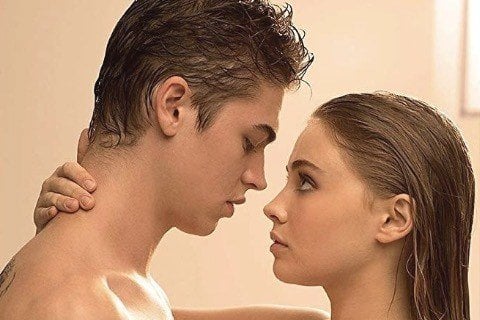
The Unfurling of a Fisted Heart: Hero Fiennes Tiffin's Transformation into Hardin in After Everything
The "After" film series, born from a Wattpad sensation, has always been a polarizing phenomenon, but one undeniable constant throughout its tumultuous narrative has been the magnetic, often volatile, performance of Hero Fiennes Tiffin as Hardin Scott. Across four films, Tiffin carved a specific, brooding archetype – the quintessential “bad boy with a heart of gold (and a lot of angst).” Yet, in After Everything, the supposed final chapter, Tiffin is tasked with a transformation far more profound and delicate than merely shifting between passion and fury. Here, he meticulously unfurls the tightly fisted heart of Hardin, revealing a man utterly broken, seeking a fragile path to redemption. It is a masterful act of deconstruction and rebuilding, a testament to Tiffin's nuanced understanding of a character he has embodied for years.
From the outset of the franchise, Tiffin’s Hardin was defined by a coiled intensity. His gaze, often described as smoldering, could convey a multitude of emotions – possessiveness, pain, jealousy, overwhelming love – all within the space of a beat. His posture was often confrontational, a physical manifestation of his internal turmoil. Even his moments of tenderness felt charged, brimming with the potential for eruption. He was a force of nature, driven by impulse and a deep-seated insecurity, traits Tiffin delivered with a raw, visceral energy that made the character simultaneously frustrating and compelling. He embodied the literary "dark academia" aesthetic even before it was widely trending, a walking contradiction of leather jackets and classic literature.
However, After Everything strips this very essence away. The film opens with Hardin at his lowest ebb, wrestling with writer’s block, depression, and the crushing weight of his past actions, particularly his betrayal of Tessa. Tiffin’s initial portrayal here is a stark departure from the familiar, volatile Hardin. The coiled intensity is gone, replaced by a weary slump. His once piercing gaze now holds a hollowed, distant quality, reflecting a mind trapped in a loop of self-recrimination. He doesn't just look sad; he looks empty. His movements are slower, more deliberate, lacking the impulsive energy that previously defined him. It’s not an outward explosion of anger, but an inward implosion of spirit. Tiffin subtly conveys this through a lack of his usual swagger, a quiet resignation in his voice, and the way he avoids eye contact, as if ashamed of his own reflection.
The core of Hardin’s transformation in After Everything lies in his journey towards genuine vulnerability and accountability. In previous films, his apologies often felt performative, quickly followed by another destructive outburst. Here, Tiffin portrays a man who is not just saying he's sorry, but genuinely feeling the weight of his transgressions. When he travels to Lisbon, confronting the ghosts of his past – Natalie, his mother, even himself – Tiffin showcases a Hardin stripped bare. His interactions are less about verbal sparring and more about quiet listening, a hesitant willingness to absorb the pain he’s caused.
Observe, for instance, the scene where he confronts Natalie. Gone is the defensive snarl. Tiffin plays it with a subdued solemnity, his eyes reflecting a deep remorse as he listens to her perspective, offering no excuses, only genuine regret. This isn't the grand, sweeping gesture of love Hardin once offered Tessa; it's a series of small, hard-won acts of humility. His smile, once a sardonic smirk or a confident flash, becomes tentative, almost shy, revealing a man unaccustomed to feeling genuine joy without the shadow of immediate self-sabotage. The change is not in a sudden shift, but in the sustained commitment to a quieter, more introspective energy.
By the film’s conclusion, as Hardin finds a measure of peace and finally publishes his book, Tiffin completes the circle. The familiar spark returns to his eyes, but it’s a different kind of light – not fiery or possessive, but mature and grounded. His posture regains a certain confidence, but it’s the confidence of a man who has faced his demons and emerged, albeit scarred, with a newfound understanding of self. When he reunites with Tessa, their final scene together is imbued with a quiet, adult understanding. Tiffin plays this with a gentle warmth, a steady gaze that promises not explosive passion, but enduring, respectful love – a testament to a character who has finally learned to love himself, and thus, truly love another, without the need for chaos.
Hero Fiennes Tiffin's performance in After Everything is a masterful study in character evolution. He meticulously peels back the layers of the volatile, brooding Hardin, revealing the scared, vulnerable boy underneath, and then, painstakingly, helps him grow into a man capable of quiet strength and genuine redemption. It's not a dramatic cosmetic overhaul, but a profound internal recalibration, conveyed through the subtle nuances of his gaze, his posture, his voice, and his very presence. In this final chapter, Tiffin doesn't just play Hardin; he becomes the embodiment of his long-awaited transformation, delivering a performance that elevates the character from a problematic fantasy to a compelling portrait of a man’s journey from darkness into a fragile, hard-earned light.
